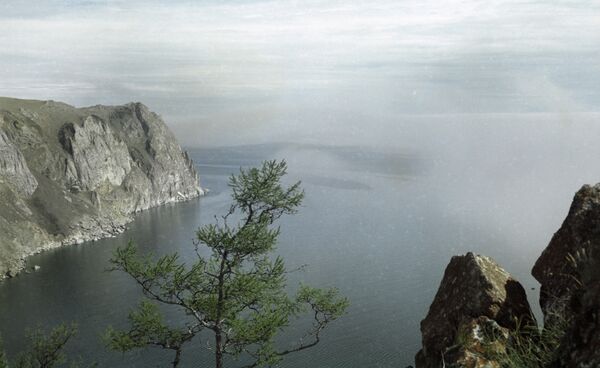A Greenpeace Russia expert warned on Tuesday that government plans to restart operations at one of the country's most controversial factories, the Baikal Pulp and Paper Mill, would harm the nation's image.
Last week, Russian Prime Minister Vladimir Putin signed a resolution excluding the production of pulp, paper and cardboard from the list of operations banned in the Baikal natural territory.
Mikhail Kreindlin described Putin's motion as incorrect and illegitimate, and said it would violate Russia's international commitments.
"This will mar Russia's image and could remove Lake Baikal from the list of UNESCO World Heritage sites. Though no UNESCO sanctions are envisaged, this will deal a severe blow to Russia's image," Kreindlin said.
Valery Petrosyan, Moscow State University professor and president of the Ecology and Health center, was less categorical about Putin's plans and urged the necessary environmental control of water treatment facilities at the factory.
"If a probe... shows that waste waters discharged by the plant do not contain major toxicants damaging Baikal's fauna and flora, and people living around Baikal, the resumption of production at the Baikal Pulp and Paper Mill could be given a green light," Petrosyan said.
Another Russian expert, Vyacheslav Pankov, who heads Russia's Guild of Ecologists, argued that the plant was equipped with the most sophisticated water treatment facilities.
"I believe everything is under control at the plant, [including] the entire water treatment cycle," he said.
Pankov went further to suggest that a social catastrophe would occur in the town of Baikalsk unless the plant is reopened.
A public campaign to close or convert the pulp and paper mill, built on the shores of the world's largest freshwater lake in 1966, became one of the symbols of Glasnost, the "openness" policy proclaimed by Soviet leader Mikhail Gorbachev in late 1980s.
It involved the nation's leading statesmen and literary individuals who forced the Soviet government to promise a halt to pulp production by 1993.
The collapse of the Soviet Union in 1991 delayed the decision, and it was only in October 2008 that the plant switched over to a closed water cycle, preventing the discharge of waste into the lake.
Closed-cycle production proved unprofitable and the plant, which is owned by industrial magnate Oleg Deripaska and can produce 200,000 metric tons of pulp and 12,000 tons of packaging paper a year, launched bankruptcy proceedings in October 2009.
MOSCOW, January 19 (RIA Novosti)




